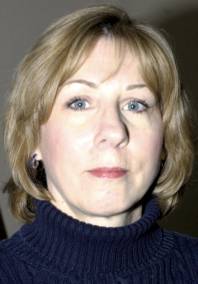Thursday, Nov. 20, 2008 | 1:50 a.m.
Related section

Rene Hill
Leaders in business and higher education are taking a critical view of the current education system and find it lacking in the interdisciplinary thinking skills that are needed for the 21st century work force.
"Integrating 21st century skills into teaching and assessment ... is not only an economic imperative, driven by changes in the workforce, but a vital aspect of improving student learning," says "Measuring Skills for the 21st Century," a white paper that was released on Nov. 10 by the Washington-based think tank Education Sector.
The paper is part of a growing voice from business and education leaders that believes most schooling concentrates too heavily on imparting factual information rather than ensuring that students know how to use information. The group sees this skill as a vital need in the changing economy.
"In an age when facts can be located in seconds on the Internet, schools should teach students such skills as how to critically evaluate what they find, connect it to other subjects and apply to real world problems, and collaborate well with partners halfway around the globe," the paper's authors argue.
Measuring those skills, however, will require new instruments more complex than multiple choice tests.
There is some skepticism about whether the new approach is feasible in a time of government-mandated accountability, when many states are eliminating short answer items from their assessments to save time and money.
However, assessments are emerging that offer promise in the evaluation of broad and deep skills that students now need, according the Elena Silva, the Education Sector policy analyst who wrote the report.
Among examples of the new types of tests being developed is the College Work and Readiness Assessment, which is being used by a few private schools and one public school. The test uses reports, budgets and similar materials. Students are asked to solve such problems as managing traffic congestion in a growing city.
In doing this type of work, they have to draw on their skills in math, reading and other core subjects and show how well they can evaluate information and bring multiple subjects together to forge creative solutions.
Assessment expert W. James Popham, a professor emeritus at UCLA, calls the think tank's report "thought provoking and accurate." It is, he says, much more difficult to build assessments to measure skills.
One of the biggest barriers to widespread teaching and testing of such skills is the idea that children must be taught "basic skills" before progressing to more complex, higher-order thinking skills.
"Advances in psychology in the past half-century have shown that children are better engaged, and learn basic skills better, when they are taught in the context of more complicated ones, such as solving a real-world problem," said Christopher Dede, a professor in learning technologies at the Harvard Graduate School of Education. "We've never made that shift, and most people still don't understand that."
René Hill is a special education and former English teacher in the Clark County School District. She can be reached c/o The News, 2360 Corporate Circle, Third Floor, Henderson, NV 89074 or [email protected].

Join the Discussion:
Check this out for a full explanation of our conversion to the LiveFyre commenting system and instructions on how to sign up for an account.
Full comments policy